Throughout ages, trees have symbolized a multitude of things, notably knowledge, growth and life itself, particularly in religious traditions. In the Quran (14:25), this appears as: “A good word is like a good tree, firmly grounded and its branches high in the sky. It bears fruit, by the leave of its Lord, in all seasons.” In her artwork, Maryam Usman, CBEC Media Associate, attempts to capture this metaphor.

Foreword by Farhat Moazam*
“Looking Back”
Farhat Moazam
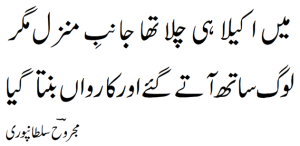
I embarked on the journey alone but
One by one they came, we became a caravan
Serendipity can lead to the most rewarding ventures in life. In 2002, as a doctoral student in the University of Virginia, I chose to conduct an ethnographic study on organ transplantation in Pakistan in the Sindh Institute of Urology and Transplantation (SIUT), a public sector healthcare institution in Karachi. Late at night as I sat analyzing my data, Dr. Adib Rizvi, Director of SIUT, would walk in, pull up a chair and we, both surgeons, would compare notes about our day – he his experiences in the OR and clinics and I the moral quandaries I had discovered interviewing patients, families, and physicians. One day, Dr. Rizvi looked at me and said, “Come back to Pakistan. We need a center for what you are studying.”
From that comment germinated the Center of Biomedical Ethics and Culture (CBEC). Inaugurated in SIUT on October 8, 2004, its beginnings were modest – one full-time and one part-time faculty (myself and Aamir Jafarey) and one staff member housed in a narrow L-shaped room with two poky offices – but the goals expansive. The Center would serve as the academic and intellectual resource in bioethics for Pakistan and the region and establish a presence in the international community. Including the word “Culture” in the Center’s name was deliberate. It flagged the emphasis in our educational and research activities on engaging with local cultural values, including religion, and socioeconomic realities that shape personal and professional moral lives. This would serve as a corrective to the philosophical, analytic paradigm dominating modern bioethics.
Today, twenty years later, CBEC has four full-time faculty and over a dozen national and international associate faculty from fields that constitute the core of interdisciplinary bioethics. Over a hundred graduates from the Center’s formal bioethics programs, Master’s and a Postgraduate Diploma, and many more professionals who have attended CBEC workshops, are now in institutions around Pakistan and the region. In 2017, CBEC was designated a WHO Collaborating Center in Bioethics, and began the CBEC KEMRI Bioethics Training Initiative (CK-BTI) program though an NIH grant.
The June 2024 Bioethics Links in your hands today, or on your screen, is a special edition to commemorate CBEC’s two decades of existence. For us, working on this newsletter was a time of self-reflection about who we are. Assembling the content involved ferreting out (scattered) old reports, correspondences and photographs. Heeding poet Robert Burns “to see ourselves as others see us,” we also requested teachers and graduates to share their impressions. A special thanks to faculty Sualeha Shekhani and Farid bin Masood and staff Aamir Shehzad in helping to make this edition possible.
*Professor and Chairperson, Centre of Biomedical Ethics and Culture, SIUT
HOW IT ALL STARTED FOR ME
Aamir Jafarey
The idea that led to the germination of the Centre of Biomedical Ethics and Culture at SIUT began as an informal discussion over coffee in the spring of 2003 in Virginia, USA.
CBEC At 20 - HAPPY BIRTHDAY!
Paul A. Lombardo
When Dr. Farhat Moazam invited me to visit Karachi in 2004 to speak at the inauguration of CBEC, I was thrilled that I would be visiting a part of the world that I knew only from newsreels and travel photos.
CBEC’S 20TH ANNIVERSARY-A REASON FOR WHO TO CELEBRATE
Andreas Reis
The year 2024 marks two decades since the establishment of the Center for Biomedical Ethics and Culture (CBEC) at the SIUT in Karachi, a commendable milestone worth celebrating.
CBEC - 20th ANNIVERSARY
Daryl Pullman
Let me begin by offering my sincere and enthusiastic congratulations to all the CBEC faculty, staff, and students on the centre’s 20th anniversary.
A TALE OF BIOETHICS IN TWO CITIES
Elizabeth Bukusi
A big black hole – that was what bioethics seemed like to me. You sent in a research protocol for review to an ethics review committee. You waited with bated breath.
2014: CBEC UNDERGOES FORMAL EXTERNAL REVIEW
In 2014 CBEC completed its first ten years. Dr. Moazam requested Dr. Adib Rizvi, Director of SIUT, to organize a formal external assessment of the Center’s programs and activities.
HAPPY BIRTHDAY CBEC!
Alastair Campbell
It is ten years since I served as a member of the External Review team for the Centre of Biomedical Ethics and Culture, and I am delighted to write a few words of appreciation for this remarkable bioethics centre as it reaches its 20th anniversary.
IMPORTANCE OF BIOETHICS: REFLECTIONS OF A PHILOSOPHER
Abdul Wahab Suri
The Centre of Biomedical Ethics and Culture (CBEC) in SIUT, still the only center in this discipline in Pakistan, will celebrate its 20th anniversary this year.
A WALK DOWN MEMORY LANE
An overview of key milestones in CBEC’s twenty-year journey from 2004 to 2024, featuring archival materials and memorable photos, along with an infographic highlighting CBEC’s impact nationwide and beyond.
ALUMNI CORNER
Alumni discuss CBEC’s impact on their perspectives and careers, as well as their experiences with bioethics in their fields and institutions.
RESEARCH TRENDS AT CBEC: AN OVERVIEW
Sualeha Shekhani
Over the past two decades, CBEC’s research portfolio showcases a remarkable diversity. This reflects not only the varied interests of the faculty but also illustrates the academic liberty provided to faculty,
WORLD CONGRESS OF BIOETHICS, QATAR, JUNE 3-6, 2024
Since 1992, the International Association of Bioethics (IAB) organizes a biennial World Congress of Bioethics (WCB) in different countries.
From our Archives
Please let him go!
Nida Wahid Bashir
“The phone rang and I turned over in bed glancing at the clock. It was 1:00 am and I was on-call and I hated it. I picked up the phone before my three-year old daughter decided to do so.”
CBEC Events

CBEC Forum: Dilli Jo Ek Shehr Tha
Mughal Delhi’s Romance with her Urdu Poets
May 18, 2024
Dr. Saif Mahmood, author of "Beloved Delhi: A Mughal City & Her Greatest Poets," explored the rich history of Urdu poetry connected to Mughal Delhi. Audience, many online, heard works of poets like Sauda, Mir, Ghalib and Dagh, and “virtually” toured historic Delhi streets.
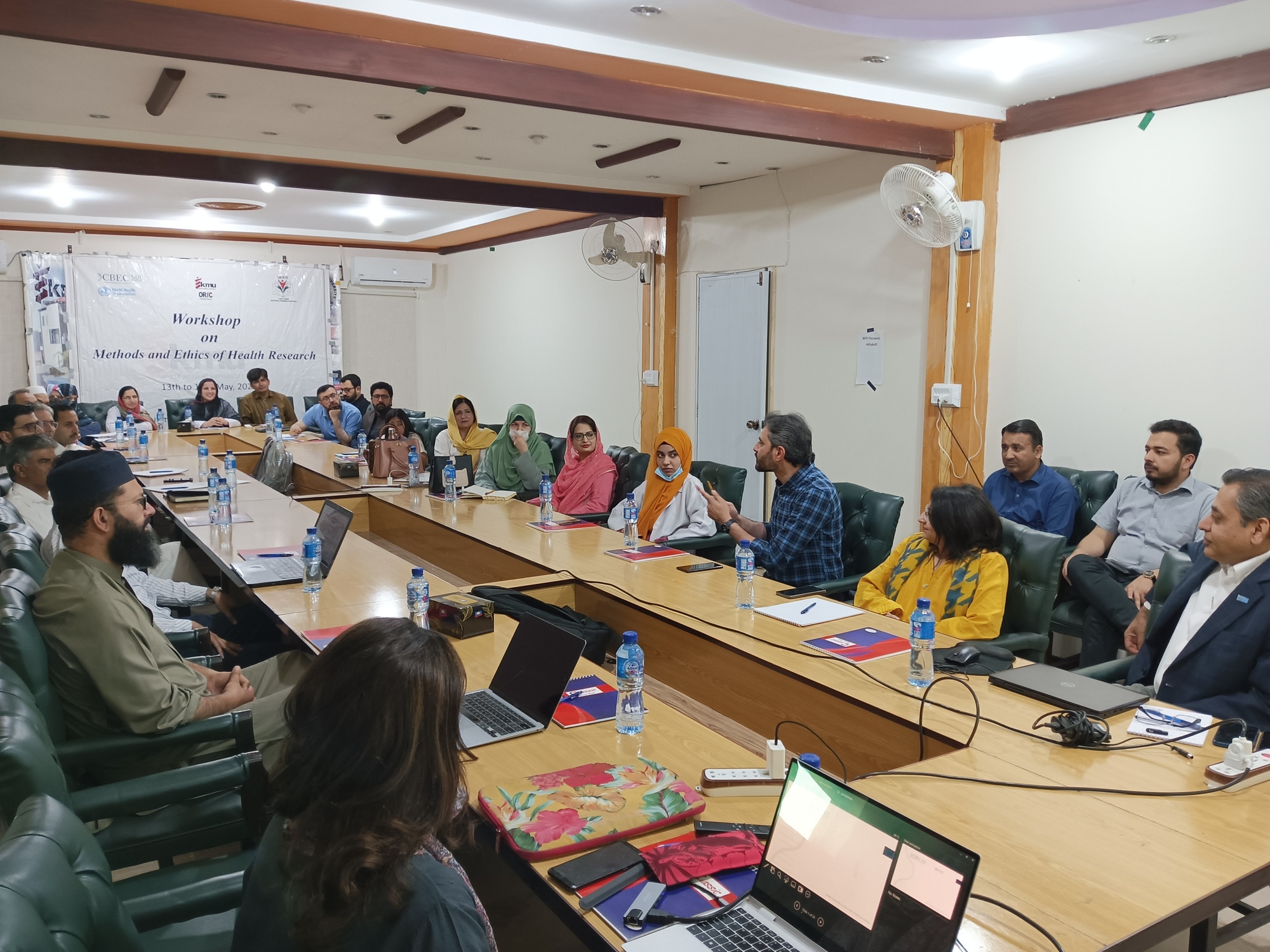
Methods and Ethics of Research
Khyber Medical University (KMU), Hazara,
May 13-15, 2024
As part of CK-BTI, a collaborative workshop with KMU was conducted to highlight ethical issues associated with health research. The picture shows participants engaged in a discussion with CBEC faculty includ ing Dr. Aamir Jafarey and Ms. Sualeha Shekhani.
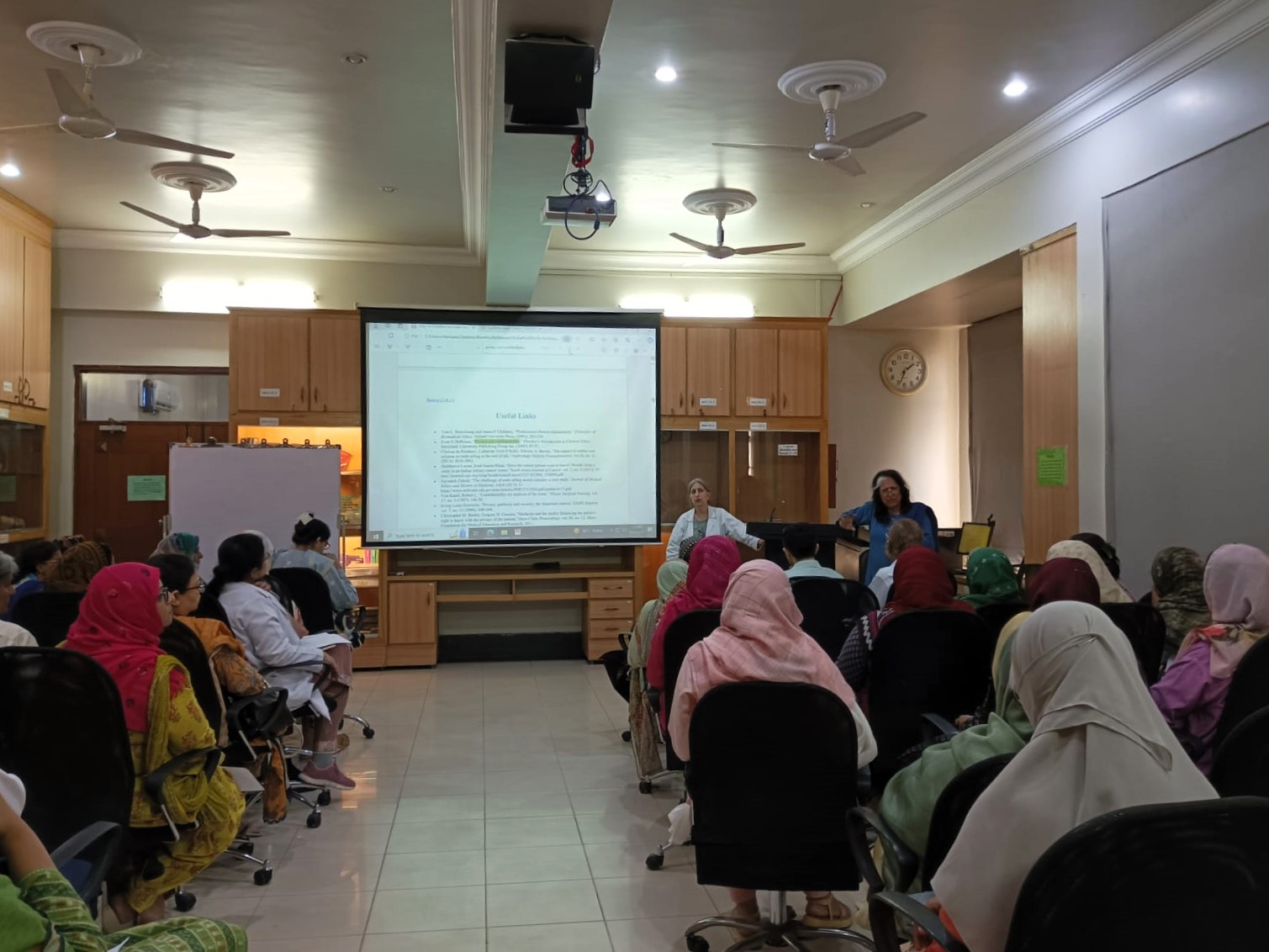
Train the Trainers
Dow University of Health Sciences (DUHS), Karachi
May 2024
At the request of DUHS Vice-Chancellor, a course has been initiated to train DUHS medical faculty in teaching bioethics to medical students. The picture shows Dr. Farhat Moazam and Dr. Bushra Shirazi conduct ing a session on “Informed Consent.”
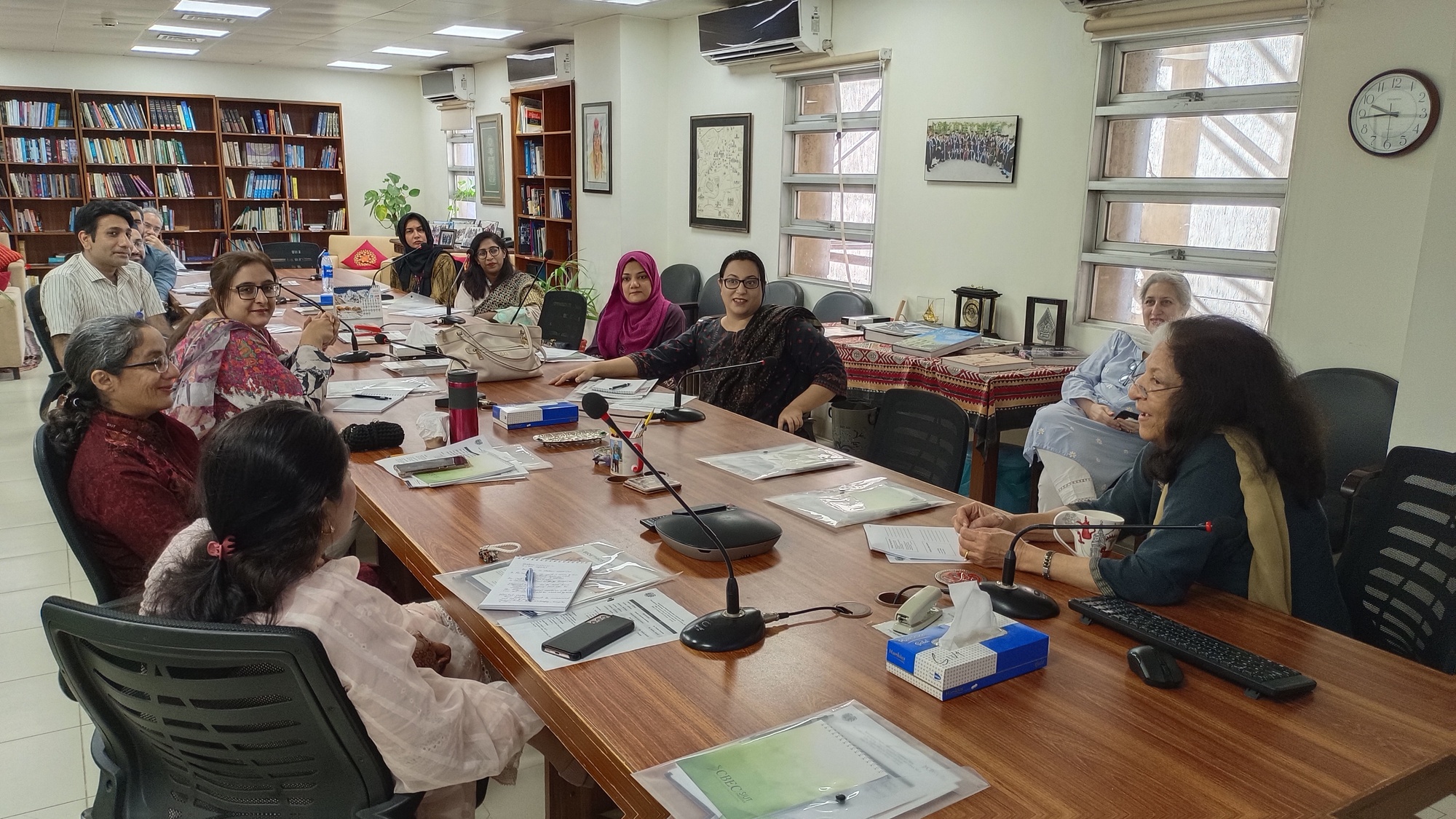
Medical Ethics for Medical Educators
CPSP: International Medical Education Conference
February 20, 2024
At the College of Physicians and Surgeons of Pakistan’s request, CBEC held a workshop in CBEC on clinical ethics with medical educa tionists. The picture shows Dr. Moazam conducting a session on the importance of microethics in medical practice.
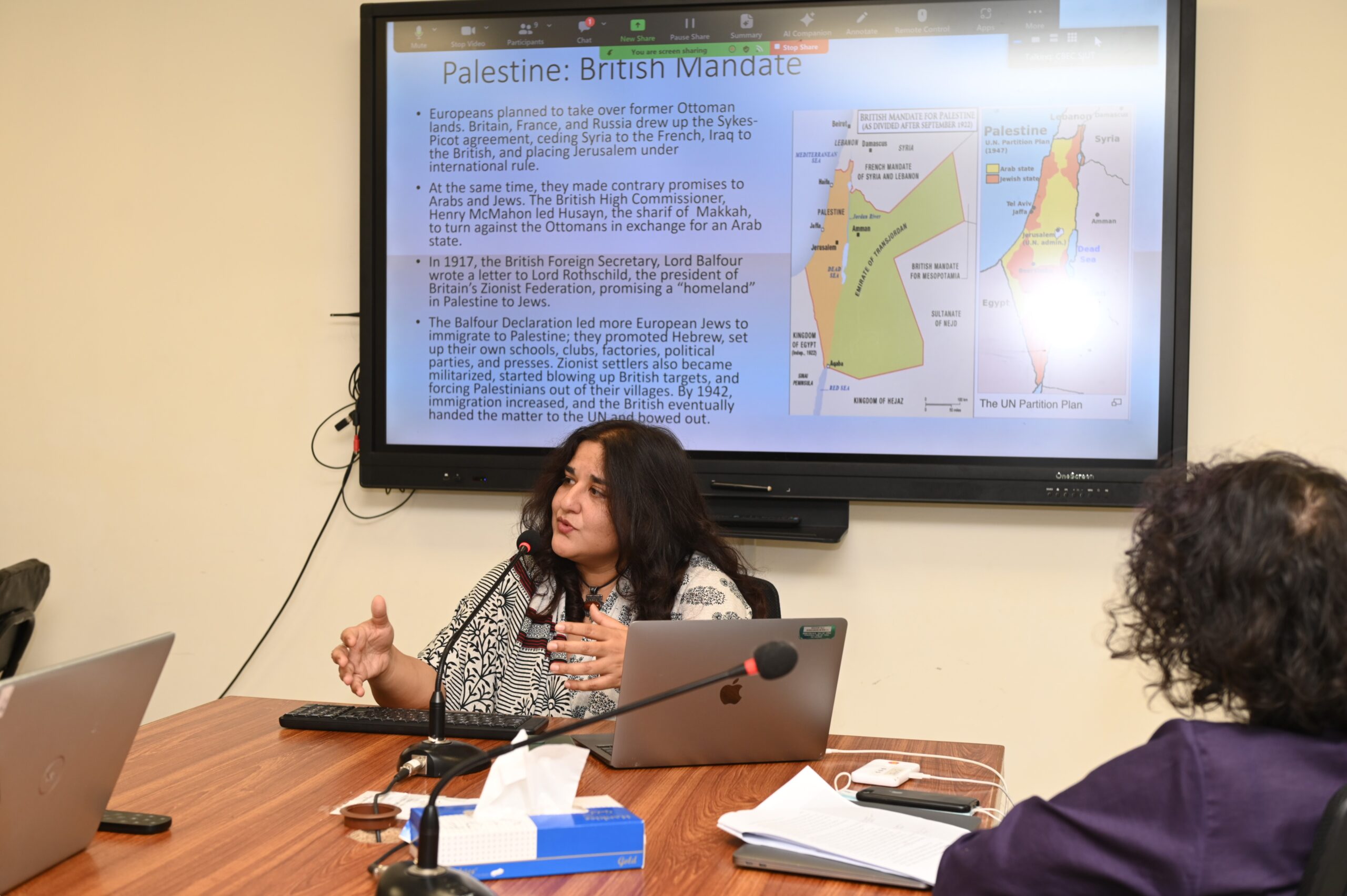
CBEC Forum "Palestine: Historical Context and Political Implications"
December 30, 2023
Dr. Taymiya R. Zaman, Professor at University of San Francisco, discussed the role of colonialism in creating the Zionist state of Israel and the local resistance to this in the subsequent years. She also explored the interconnected nature of post-colonial struggles in the Global South including Pakistan. Providing context for the ongoing Israel-Hamas conflict of October 7, 2023, she emphasized the role of social media in shaping activism today.
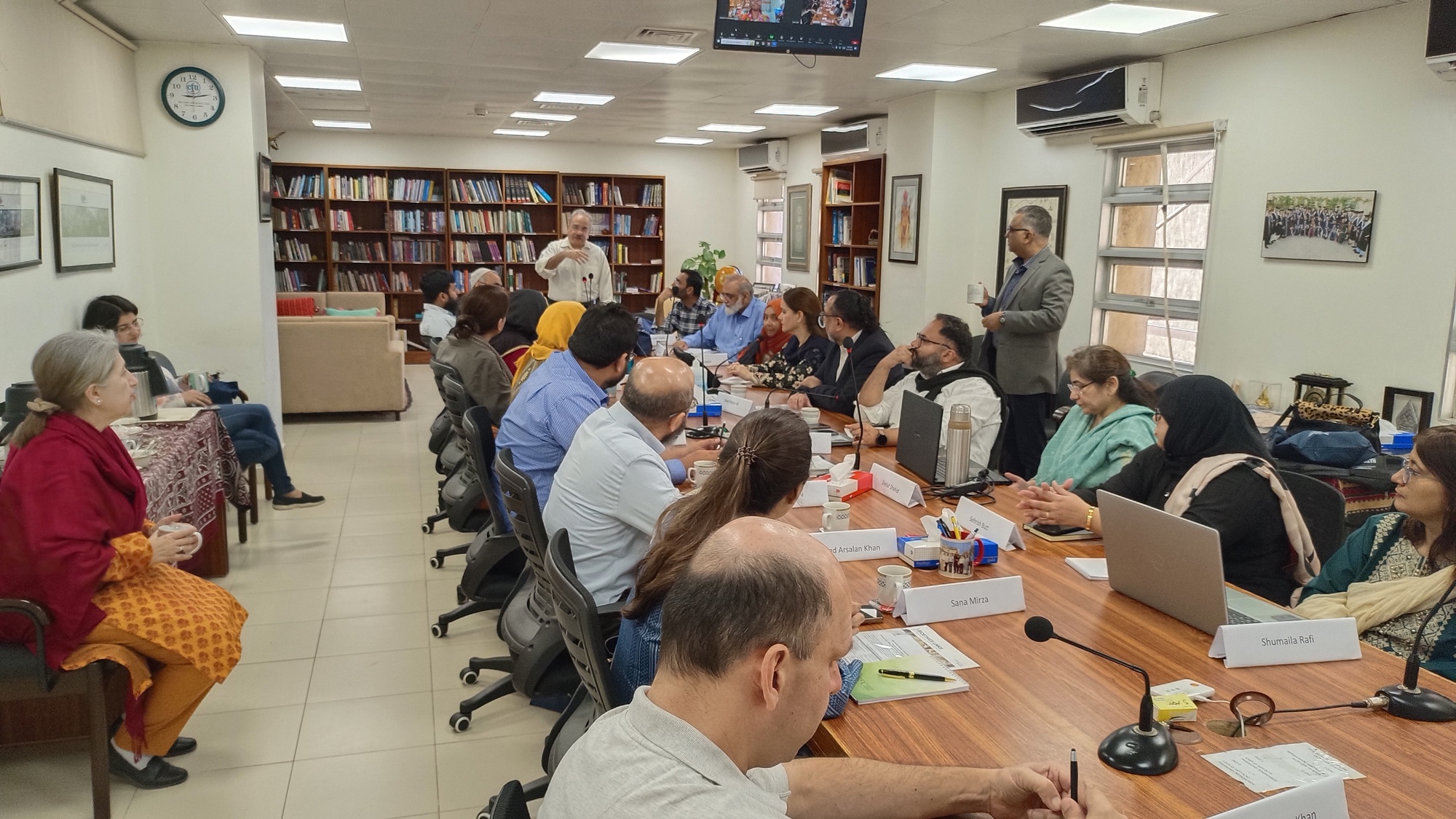
Workshop "Bioethics Pedagogy"
December 11-12, 2023
This workshop is part of CBEC-KEMRI Bioethics Training Initiative (CK-BTI) funded by National Institutes of Health (NIH), USA. It aims to equip individuals to impart bioethics education in a better fashion. Out of eighty applicants, 22 participants were selected. The facilitators included Dr. Shahid Shamim and Dr. Bushra Shirazi, both with formal qualifications in medical education and bioethics. Participants were introduced to different teaching tools including cases and videos followed by small group activities and mock teaching sessions.
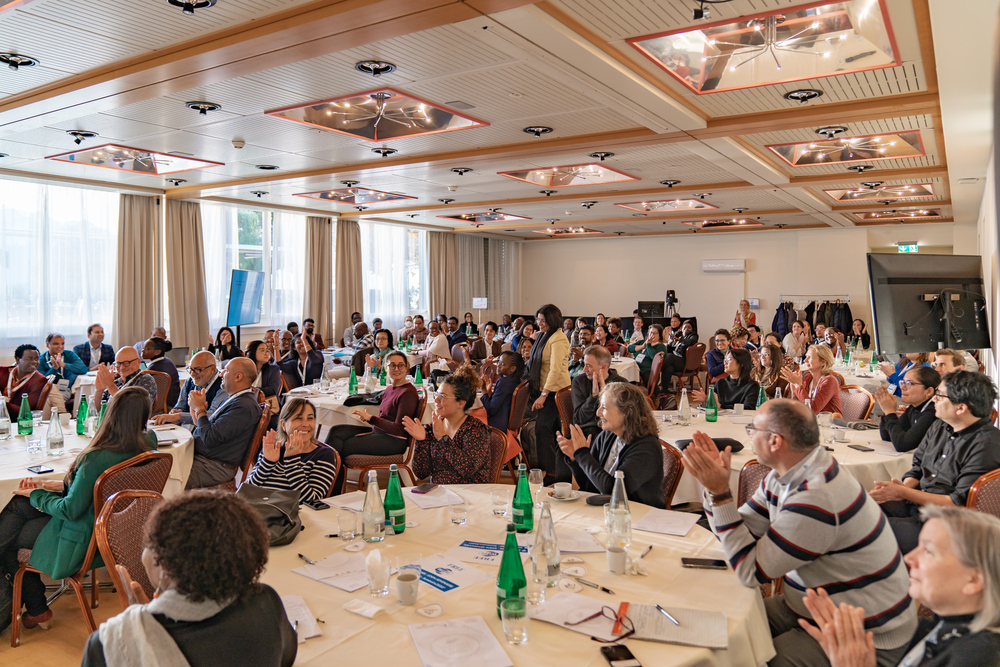
GFBR Meeting, Montreux Ms. Sualeha wins an award
November 28-29, 2023
The Global Forum on Bioethics in Research (GFBR) is a platform for sharing research ethics experiences. The theme of the two-day meeting held this year in Montreux, Switzerland was “Ethics of health research priority setting.” Ms. Sualeha Shekhani, Assistant Professor at CBEC gave a PechaKucha presentation titled “Sualeha in Research Ethics Land: Down the Rabbit Hole” which won the award for best presentation. In it, she explored the ethics of conducing malnutrition research in “over-researched” Pakistani communities for decades.
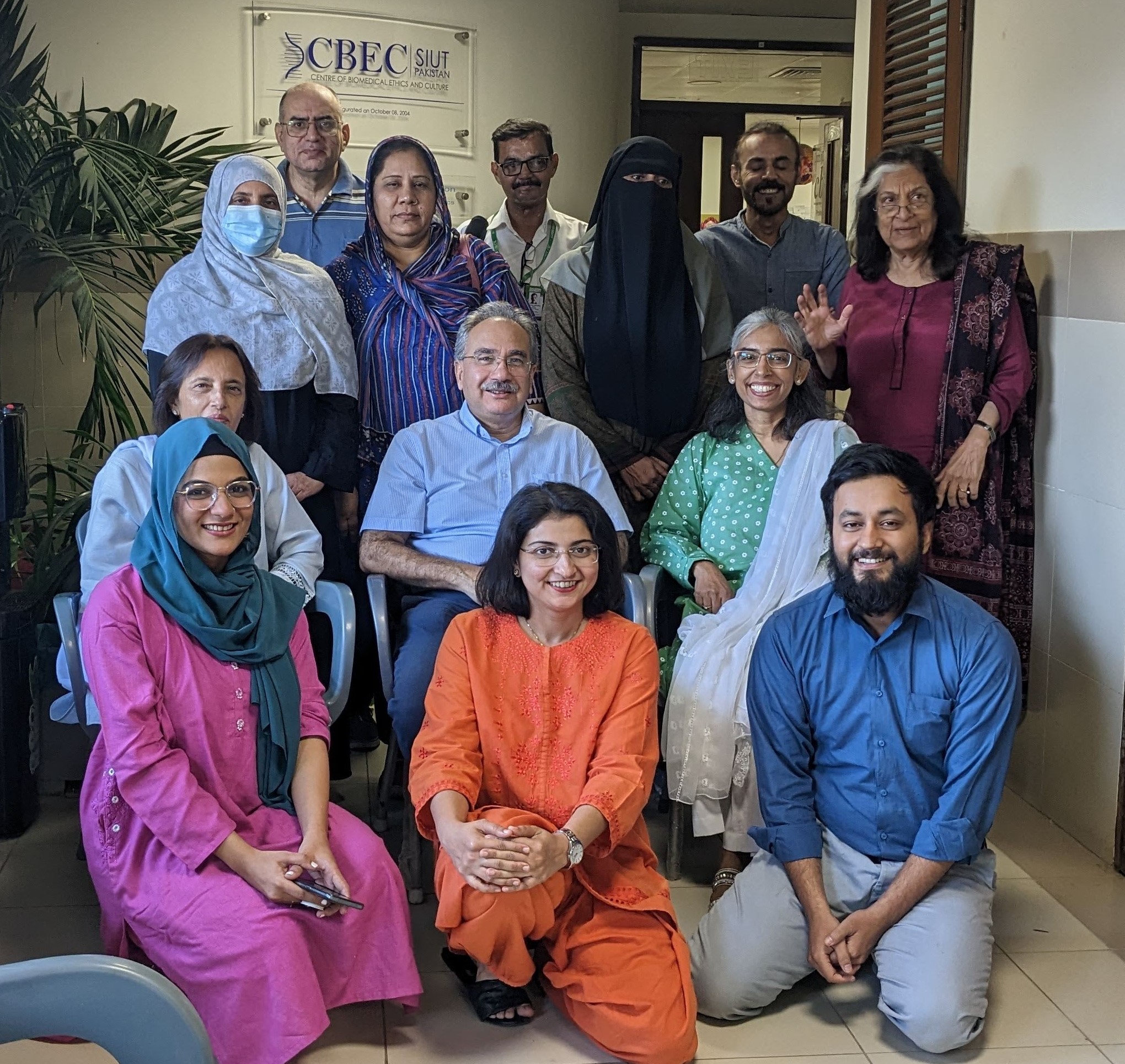
Informed Consent Workshop with Ziauddin University (ZU) PPIE group
November 11, 2023
The aim of ZU’s Patient & Public Involvement and Engagement (PPIE) Initiative is to engage lay members of the society to make research beneficial to the public. CBEC faculty introduced participants to the differences between medical practice and research, trial participants and patients, and doctors and researchers. This was the first of two workshops on strengthening informed consent processes in clinical trials.
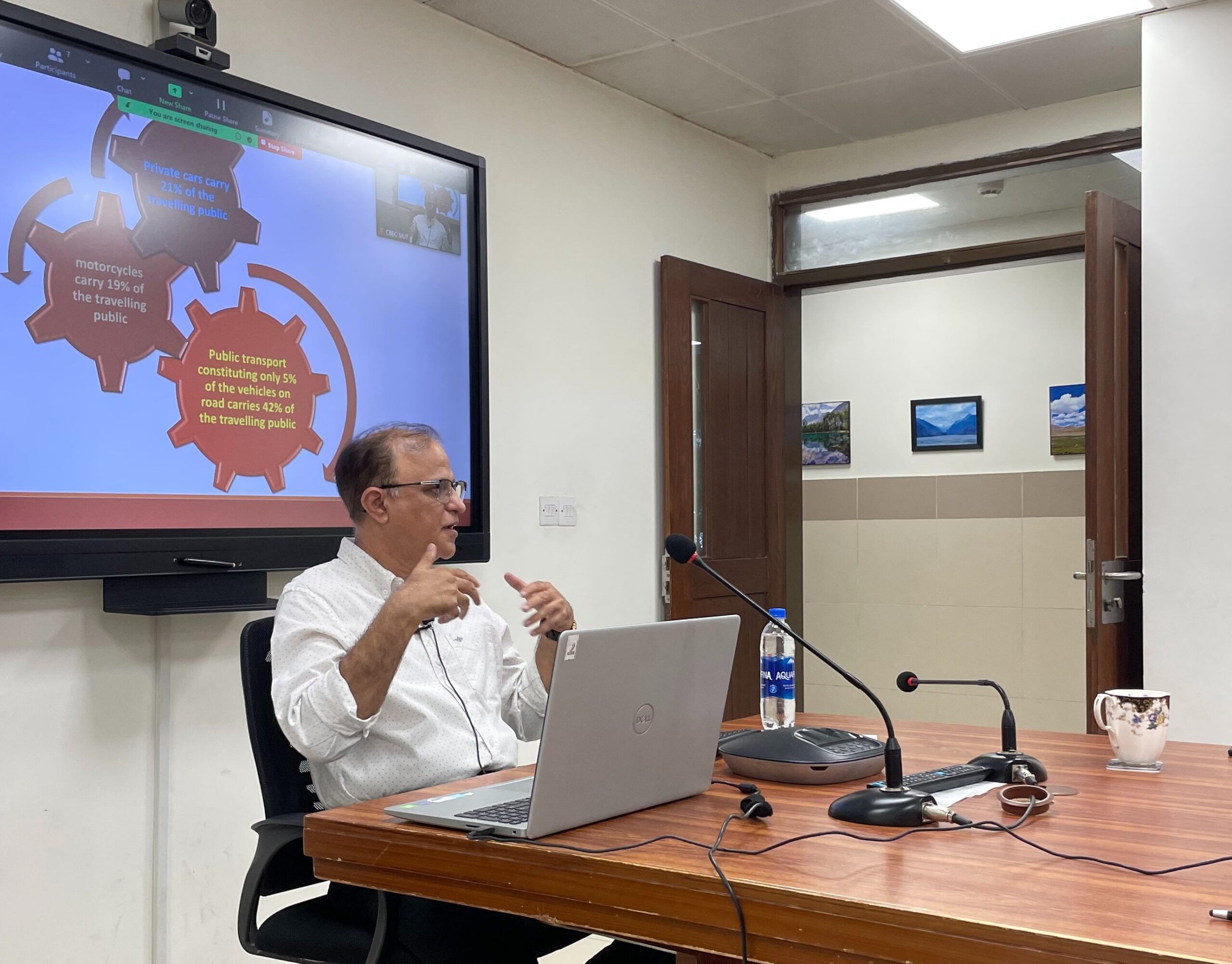
CBEC Forum "Krarchi: A Profile of Urban Inequity and Social Injustice"
October 21, 2023
This Forum, led by Mr. Farhan Anwar, Assistant Professor of Practice at Habib University, Karachi delved into the issue of urban injustices in Karachi, examining the root causes and potential solutions. He characterized Karachi as a classic case study of a fragmented city, marked by segregation on multiple levels. In his opinion, the lack of trust between society and the state exacerbates the city's problems. The forum was attended by on-site and online participants.

CBEC Forum "Al in Healthcare: Emerging Ethical Challenges"
August 19, 2023
The Forum featured Dr. Keymanthri Moodley, Professor at Stellenbosch University, South Africa. She addressed the challenges and opportunities connected to the use of artificial intelligence in healthcare. She also discussed use of proactive measures including establishment of governance structures to prevent potential harms of unbridled use of AI in healthcare. Dr. Moodley highlighted that use of AI has the potential to disrupt physician-patient relationship.

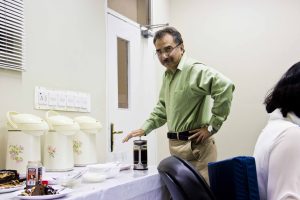
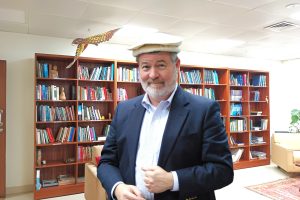
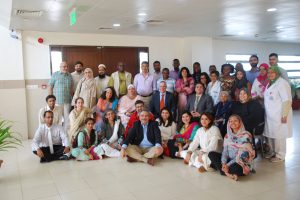
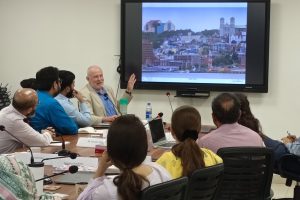
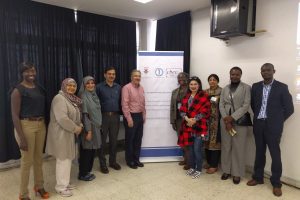
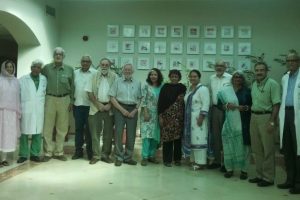
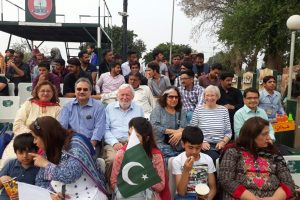
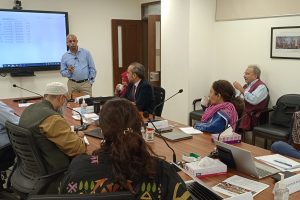

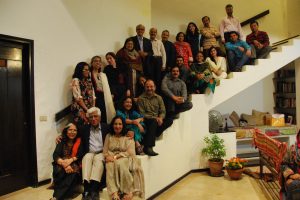
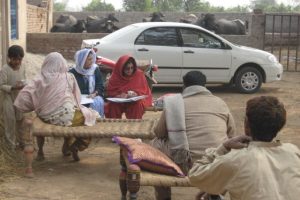
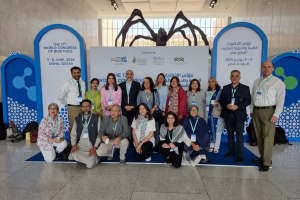

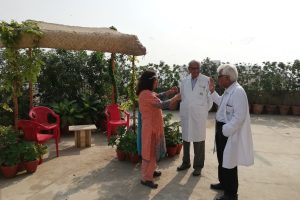
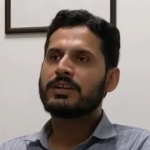
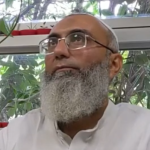
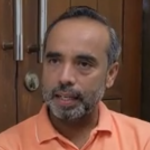
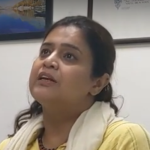
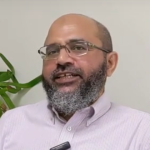
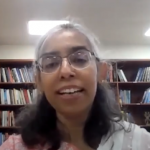
cs0nzw